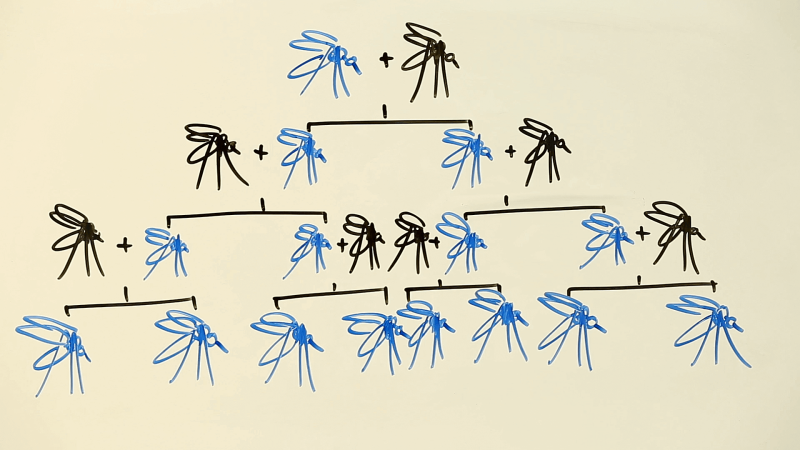In the Brazilian city of Indaiatuba, an effort is underway to eliminate [Aedes aegypti mosquitoes] before they have a chance to spread illness. The weapon: more Aedes aegypti mosquitoes—but ones genetically engineered to kill their own kind. Made by British biotechnology firm Oxitec, the mosquitoes seem to be working.
The modified mosquitoes carry a synthetic self-limiting gene that prevents female offspring from surviving. This is important, because only the females bite and transmit disease. In a new study, scientists at the company showed that their engineered insects were able to slash the local population of Aedes aegypti by up to 96 percent over 11 months in the neighborhoods where they were released.
Raul Medina, an entomologist at Texas A&M University, describes insecticides as a “hammer approach” to disease control because they affect insects other than mosquitoes and can drift to areas outside the sprayed site. High exposure to them has been shown to cause headaches, stinging eyes, dizziness, diarrhea, and respiratory problems. To him, genetically modified mosquitoes represent a more targeted option without the health or environmental risks. “The reduction they obtained is comparable to an insecticide reduction, which is really impressive,” says Medina, who wasn’t involved in the study.































